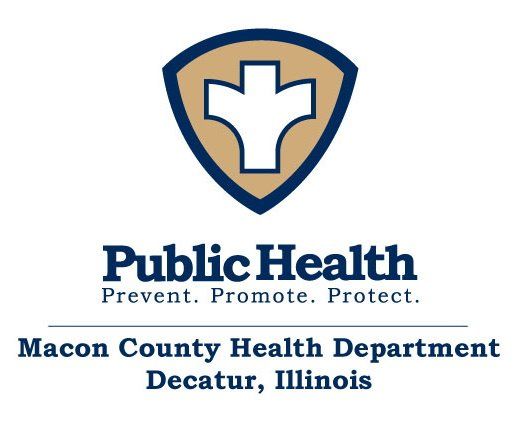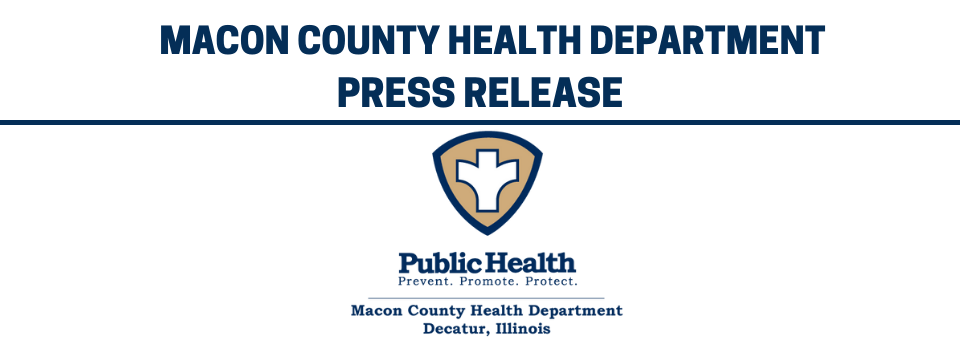First WNV-Positive Mosquito Batch in Macon County
FOR IMMEDIATE RELEASE
June 25, 2025
DECATUR, IL - The Macon County Health Department (MCHD) has received confirmation of the first mosquito batch testing positive for West Nile Virus. This batch was collected by the Macon Mosquito Abatement District (MMAD) from a gravid mosquito trap. At the time of this release, there is not a positive human case in Macon County.
The MMAD has tested 180 samples with 2 positive results. The risk of infection is currently low. However, residents should check their property and drain/dump any standing water. It is important to continue to check your property to help reduce breeding sources as this will decrease the mosquito population long-term.
Mosquitoes are attracted to standing water, bare skin, and dark clothing. It is recommended to follow the four D’s to help keep mosquitoes away:
Drain: Empty standing water every 5-7 days including watering dishes, bird baths, kiddie pools, etc.
Dress: Wear long sleeves, long pants, and light-colored, loose-fitting clothing.
Defend: Properly apply an EPA-registered repellent such as DEET, picaridin, IR 3535, oil of lemon-eucalyptus, para-menthane-diol or 2-undecanone. Oil of lemon eucalyptus and para-menthane-diol are not approved for use in children under the age of three. Insect repellents are not recommended for children younger than 2 months of age. Consult your physician before using repellents on young children or infants.
Dusk/Dawn: Avoid peak mosquito activity at dusk and dawn, when possible.
The MMAD performs daily inspections within the district and continues to treat areas of standing water that contain mosquito larvae/pupae. The MMAD staff are also looking for neglected pools, ornamental ponds, open containers and other areas that might be overlooked for mosquito breeding. If you are aware of an area that has standing water for three (3) or more days, please call the MMAD at (217) 875-2722. If you are not in the MMAD district, they can refer you to the appropriate agency.
The MCHD also conducts surveillance of West Nile Virus in dead birds. Bird collections must be fully intact without decomposition or bugs. If you find a dead bird, please call the Health Department at (217) 423-6988 ext. 1134 to report it.


